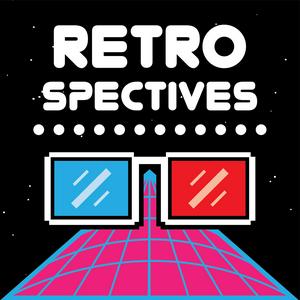E128: Baldur's Gate
In 1998 Bioware changed the gaming landscape with Baldur’s Gate, a Dungeons and Dragons inspired adventure. Taking cues from second edition D&D and the many stories written about it, Bioware wrote a low level adventure that jammed everything they could find inside it. They attempted to copy mage spells directly from the manual, and even added in famous characters like Drizzt. It was exactly what the fans had been waiting for. Not only were they able to see everything come to life, the game used the radical real time with pause system, allowing combat to flow far more freely than other turn- based games before it. Fights were fast and frequently deadly, adding a thrill to RPG combat, even if it came at the cost of precision and control.But CRPGs are now a dime a dozen. Not only are there later games in the series, Baldur’s Gate now has to compete against Pathfinder, Warhammer and Divinity, to name a few. With all the advancements in tech, in UIs, in skill systems, can the original Baldur’s Gate really compete? Has it stood the test of time, or has it been made obsolete by the wave of modern RPGS that came in its wake?On this episode, we discuss:ExplorationMuch of the early-mid game of Baldur’s Gate 1 is spent exploring the environment around the towns and keeps that are dotted around the Sword’s Coast. Is this exploration enjoyable to engage with intrinsically, and does it provide enough extrinsic rewards to motivate you to continue?CombatBaldur’s Gate’s combat is scrappy, disorganised and messy. There is a high level of vulnerability on both sides, spells have unclear areas of effect, and high rolls can produce instant-death in many circumstances. Does this combat system lead to dynamic and novel encounters that allow for tactical depth, or does it just encourage reloading until you get the outcome that you want?Character CustomisationBaldur’s Gate is a very complex game under the hood, but those calculations, and level up decisions are mostly hidden from the player. Does the game give sufficient options to the player to customise their character with skill choices and gear, or is it all predetermined the moment you first select your character? We answer these questions and many more on the 128th episode of the Retro Spectives Podcast? Intro Music: KieLoBot - Tanzen KOutro Music: Rockit Maxx - One point to anotherBaldurs Gate OST - Michael Hoenig Are you meant to eventually multiclass everyone to a mage in DND? Is Sanctuary really as overpowered as it seems? When will you play Baldur’s Gate 2, you pair of sniveling cowards? Come let us know what you think on our community discord server!You can support the show monetarily on our Buy me a Coffee Page!
